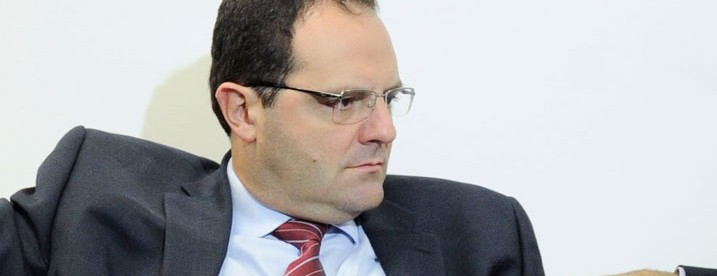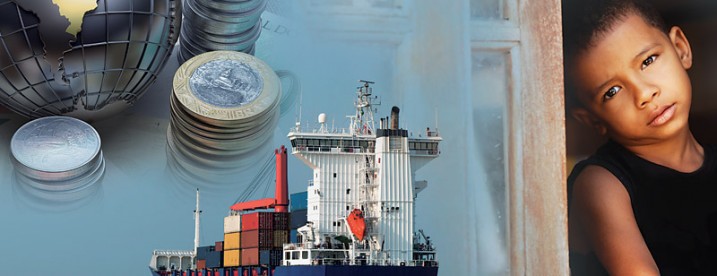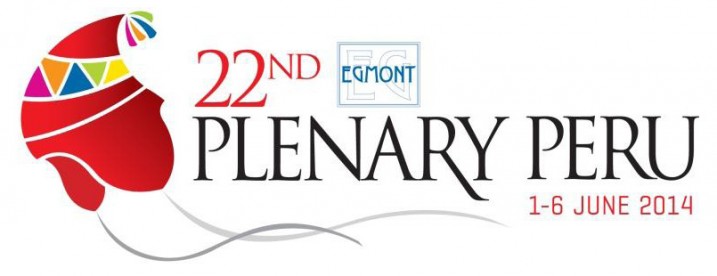WASHINGTON D.C. – Global Financial Integrity (GFI) presenta un importante análisis, resultado de entrevistas y encuestas con más de 250 expertos en crímenes financieros de América Latina y el Caribe. La investigación revela que los países de...
Global Financial Integrity is pleased to present a comprehensive survey of 250 financial crime experts in Latin America and the Caribbean. The survey shows that countries in the region need to address significant weaknesses in their effort to combat money laundering if corruption, which generates massive illegal proceeds, is to be curtailed.
The Addis Tax Initiative (ATI) this month invited Global Financial Integrity (GFI) as the first Supporting Organization to be added since the initiative was launched in July 2015. GFI joins the World Bank, the International Monetary Fund, and the Bill & Melinda Gates Foundation in this role.

Former Deputy Finance Minister Brings Wealth of Experience
WASHINGTON, DC – Global Financial Integrity (GFI) announced today that Nelson Barbosa, the former deputy finance minister of Brazil, has joined the organization’s Advisory Board. GFI, a research and advocacy organization based in Washington, DC, will benefit from Dr. Barbosa’s many years of experience working to curb tax haven secrecy and curtail illicit financial flows from the highest levels of government.

Fraudulent Misinvoicing of Trade Transactions Accounts for 92.7% of Brazil’s Illicit Outflows; Underground Economy Averaged 38.9% of Brazil’s Official GDP
Customs Enforcement, Transparency Measures, Political Will Seen as Key to Curbing Crime, Corruption, and Tax Evasion
Press Event to Be Held at JW Marriott Hotel Rio de Janeiro at 11am Local Time on Monday, September 8th, Day-Long Conference on Illicit Flows to Follow on Tuesday, September 9th
RIO DE JANEIRO, Brazil / WASHINGTON, DC – More than US$400 billion flowed illegally out of Brazil between 1960 and 2012— draining domestic resources, driving the underground economy, exacerbating inequality, and facilitating crime and corruption—according to a new report to be published Monday, September 8th at a press event in Rio de Janeiro by Global Financial Integrity (GFI), a Washington DC-based research and advocacy organization.

O faturamento fraudulento de transações comerciais foi responsável por 92,7% dos fluxos financeiros ilícitos provenientes do Brasil para outros países; A economia subterrânea correspondeu, em média, a 38,9% do PIB oficial do Brasil
A fiscalização aduaneira, medidas de transparência e a vontade política são vistas como elementos essenciais para o combate à criminalidade, à corrupção e à evasão fiscal
Um evento de imprensa será realizado no Hotel JW Marriott Rio de Janeiro na segunda-feira, 8 de setembro, às 11:00 horas, seguido de uma Conferência de um dia sobre Fluxos Financeiros Ilícitos a se realizar na terça-feira, 9 de setembro
RIO DE JANEIRO, Brasil/WASHINGTON D.C. – Mais de US$ 400 bilhões deixaram o Brasil ilegalmente entre 1960 e 2012, drenando os recursos internos do país, estimulando a economia subterrânea, acentuando a desigualdade e facilitando a criminalidade e a corrupção, afirma um novo relatório a ser lançado na segunda-feira, 8 de setembro, em um evento de imprensa a se realizar no Rio de Janeiro sob os auspícios da Global Financial Integrity (GFI),uma organização de pesquisa e advocacy sediada em Washington.

Contributing to a Safer and More Secure World Demands That Financial Intelligence Units Work to Change the System from Within
GFI President Raymond Baker delivered the keynote address before the 22nd Plenary of the Egmont Group of Financial Intelligence Units in Lima, Peru.
Fraudulent Trade Misinvoicing Drained US$9.54 Billion in Illicit Money from Argentina from 2001-2010
Trade-Based Money Laundering Technique Siphoned US$4.69 Trillion from Poor Countries between 2001-2010; Facilitates Sex Slavery, Terrorism, Tax Evasion
WASHINGTON, DC – As the U.S. Department of Justice announced today that Ralph Lauren Corporation (Ralph Lauren) utilized fraudulent misinvoicing tactics to funnel bribes to Argentinean customs officials over the course of five years, Global Financial Integrity (GFI) noted that trade misinvoicing drained US$9.54 billion from the Argentinean economy between 2001 and 2010. The deliberate misinvoicing of trade documents is used to launder all types of illicit money, and it costs the developing world roughly US$4.69 trillion in illicit financial outflows from 2001 through 2010, according research by GFI, a Washington, DC-based research and advocacy organization.



